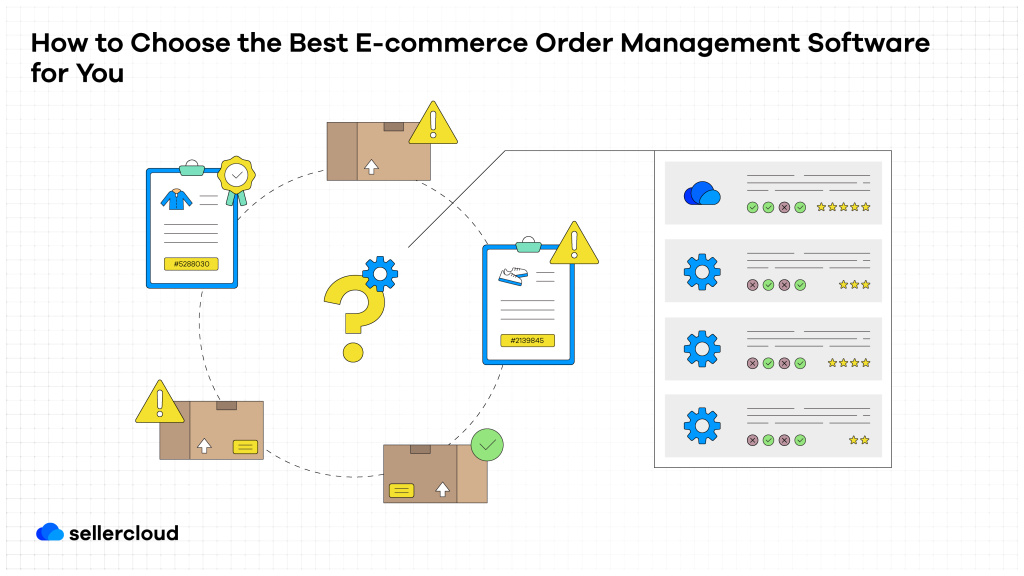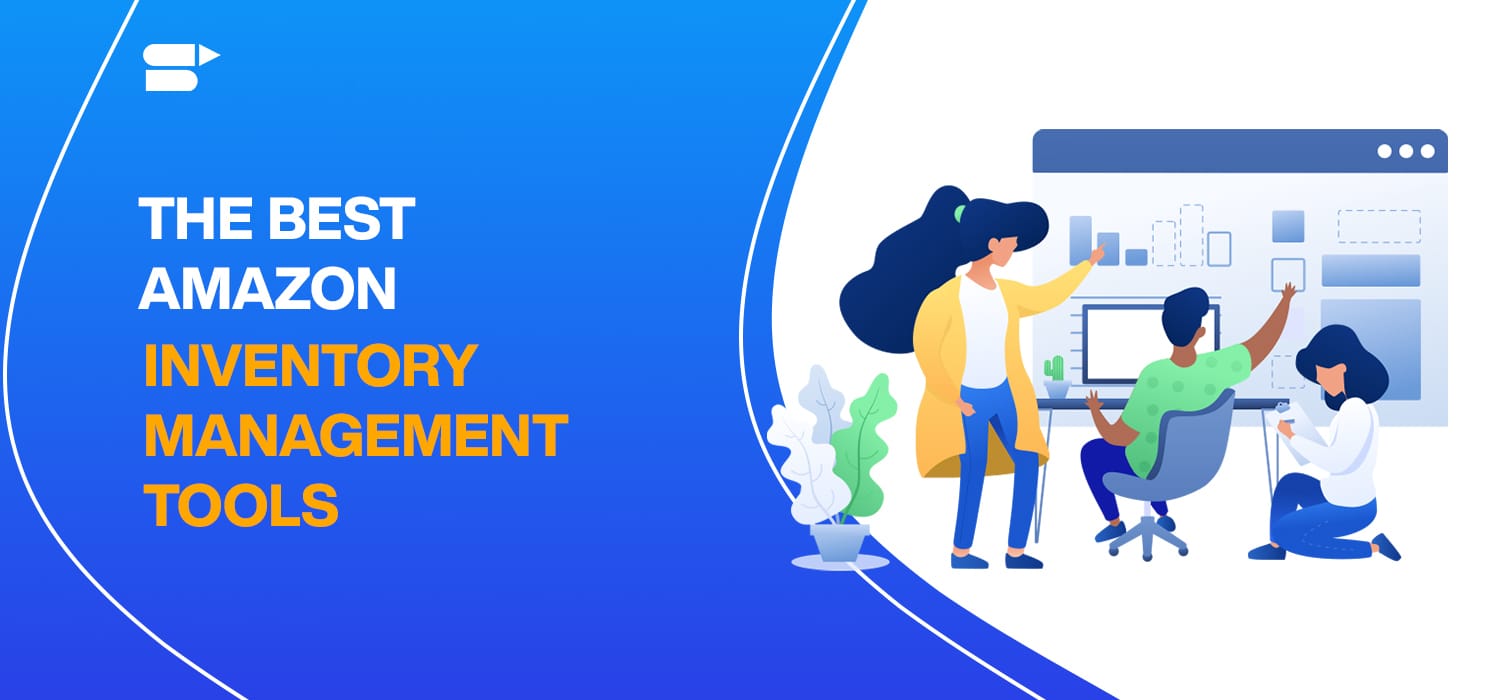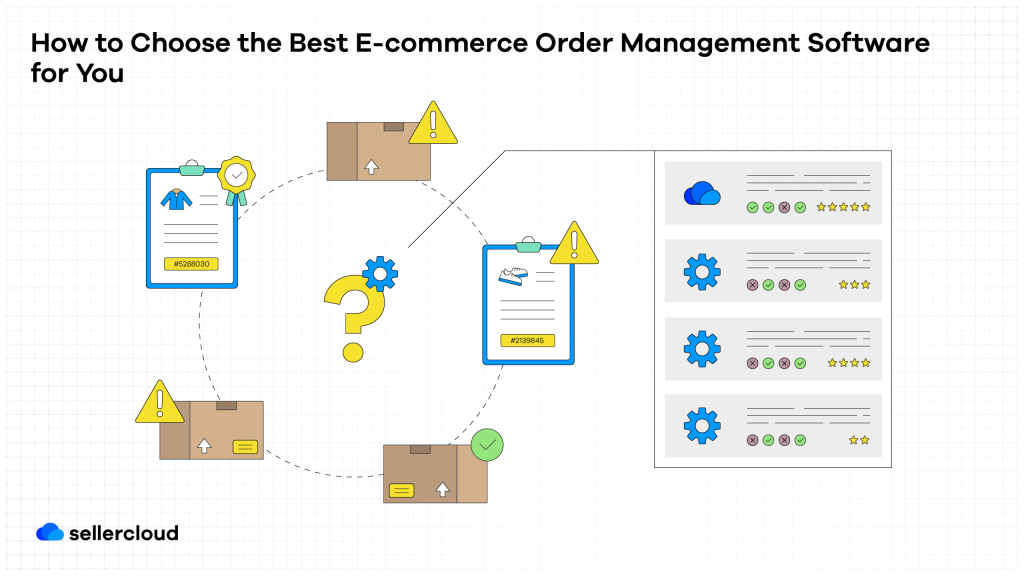Running an online store can be complex. Ecommerce management tools can simplify this task.
Managing inventory, processing orders, and handling customer service are crucial for success. Ecommerce management tools help streamline these processes, making them more efficient. They save time, reduce errors, and improve customer satisfaction. As the ecommerce landscape grows, the need for effective management tools becomes vital.
These tools offer various features tailored to different business needs. From automating tasks to providing valuable insights, they support every aspect of your online store. Ready to find out which tools can transform your ecommerce business? Let’s dive in and explore the best ecommerce management tools available today.

Credit: sellercloud.com
Top Ecommerce Platforms
Choosing the right ecommerce platform is crucial. It can make or break your online store. You need a platform that is easy to use, flexible, and scalable. Here are some of the top choices.
Shopify
Shopify is a popular ecommerce platform. It is user-friendly and offers many features. You can set up a store quickly. It also supports many payment gateways. Shopify has various templates to make your store look great. It is a good choice for beginners.
Magento
Magento is a powerful ecommerce platform. It is open-source and highly customizable. Large businesses often use it. Magento offers great flexibility. You can manage multiple stores with one account. It requires some technical knowledge.
Woocommerce
WooCommerce is a plugin for WordPress. It turns your site into a store. WooCommerce is free and easy to use. You can find many extensions for more features. It is a good option for small to medium businesses. You need a WordPress site to use it.

Credit: www.sellerapp.com
Inventory Management Tools
Inventory management tools are essential for ecommerce businesses. They help track stock, manage orders, and streamline processes. Efficient inventory management ensures you meet customer demands and reduce costs. Let’s explore some of the best inventory management tools available.
Tradegecko
TradeGecko simplifies inventory tracking and order management. It supports multi-channel selling and integrates with major ecommerce platforms. Users can automate stock updates and reordering. This reduces the risk of stockouts and overstock. TradeGecko also offers detailed inventory reports. These insights help businesses make informed decisions.
Orderhive
Orderhive offers robust inventory management features. It supports batch tracking and multi-warehouse management. Users can synchronize inventory across all sales channels. Orderhive also integrates with popular shipping carriers. This ensures smooth order fulfillment. Real-time inventory updates help avoid overselling and stock discrepancies.
Veeqo
Veeqo is an all-in-one inventory management tool. It helps manage stock levels across multiple sales channels. Users can track inventory in real-time and automate order processes. Veeqo also integrates with major ecommerce platforms and shipping carriers. This ensures seamless order fulfillment. The tool provides insightful reports on inventory performance.
Customer Relationship Management
Customer Relationship Management (CRM) tools help businesses manage and analyze customer interactions. These tools aim to improve customer retention and drive sales growth. Effective CRM software can transform how you understand and engage your customers. Here are three top CRM tools that stand out in the ecommerce industry.
Salesforce
Salesforce is a widely used CRM platform known for its robust features. It offers a comprehensive suite of tools for sales, customer service, and marketing.
- Customizable Dashboards: Visualize data in real-time.
- Automation: Automate repetitive tasks and workflows.
- Integration: Integrate with many third-party apps.
Salesforce is scalable, making it suitable for businesses of all sizes. The platform’s extensive options can help you deliver personalized customer experiences.
Hubspot
HubSpot is another popular CRM tool, especially for small to medium-sized businesses. It’s known for its user-friendly interface and comprehensive free plan.
- Contact Management: Keep track of all customer interactions.
- Email Tracking: Monitor email opens and clicks.
- Pipeline Management: Visualize your sales pipeline.
HubSpot also offers marketing, sales, and service hubs. This all-in-one solution helps streamline your processes and improve your customer relationships.
Zoho Crm
Zoho CRM is a versatile CRM solution that offers a range of features. It’s designed to automate and manage business processes efficiently.
- Multi-channel Support: Engage customers via email, social media, and chat.
- Workflow Automation: Automate repetitive tasks to save time.
- Analytics: Gain insights with advanced analytics.
Zoho CRM is cost-effective and highly customizable. It can adapt to various business needs, making it a popular choice among growing companies.

Credit: arena.im
Marketing Automation Software
Marketing automation software is a vital tool for ecommerce businesses. It helps in streamlining marketing tasks and campaigns. This software saves time and improves efficiency. It also ensures your marketing efforts are consistent and effective. Here are some of the best marketing automation tools available today.
Klaviyo
Klaviyo is a popular choice for ecommerce businesses. It offers advanced email marketing features. You can create personalized email campaigns easily. Klaviyo integrates with many ecommerce platforms. This makes it simple to use with your existing store.
With Klaviyo, you can segment your audience. This helps in sending targeted messages. You can also track the performance of your campaigns. This data helps in making better marketing decisions. Klaviyo’s user-friendly interface is a plus for beginners.
Mailchimp
Mailchimp is another excellent marketing automation tool. It is known for its ease of use. Even beginners can set up campaigns quickly. Mailchimp offers various templates for your emails. This makes designing emails simple and fast.
Mailchimp also provides detailed analytics. You can see how your campaigns are performing. This helps in optimizing your marketing efforts. Mailchimp integrates with many ecommerce platforms. It also offers social media marketing features. This makes it a versatile tool for ecommerce businesses.
Omnisend
Omnisend is a comprehensive marketing automation tool. It is designed specifically for ecommerce. Omnisend offers email and SMS marketing features. This allows you to reach your customers through multiple channels.
One of Omnisend’s strengths is its automation workflows. You can create complex workflows easily. This helps in nurturing leads and converting them into customers. Omnisend also provides detailed analytics. This helps in measuring the success of your campaigns. The tool integrates well with many ecommerce platforms.
Analytics And Reporting Tools
In the fast-paced world of eCommerce, understanding your customers’ behavior is crucial. Analytics and Reporting Tools help track, analyze, and report data. These tools provide insights that drive better decision-making. Let’s explore some top analytics tools for eCommerce management.
Google Analytics
Google Analytics is a powerful tool for tracking website traffic and user behavior. It offers detailed reports on:
- Visitor demographics
- Traffic sources
- Page views
- Conversion rates
With Google Analytics, you can set up custom goals and track conversions. This helps in understanding how users interact with your site. The tool also integrates with other Google services like Google Ads and Search Console. This integration provides a comprehensive view of your marketing efforts.
Hotjar
Hotjar offers insights into user behavior through heatmaps and session recordings. Heatmaps show where users click, scroll, and hover. This helps identify popular areas on your site. Session recordings let you watch real-time user interactions. This provides a deeper understanding of user behavior.
Hotjar also includes surveys and feedback polls. These tools gather direct user feedback, helping you understand their needs. With Hotjar, you can improve user experience and increase conversions.
Mixpanel
Mixpanel is a robust tool for tracking user interactions with your website or app. It offers advanced analytics and reporting features:
- Event tracking
- Funnel analysis
- Retention analysis
- Customizable dashboards
Mixpanel’s event tracking lets you track specific actions users take, like clicks and purchases. Funnel analysis shows the steps users take to complete a goal, helping identify drop-off points. Retention analysis tracks user engagement over time. This helps in understanding customer loyalty and improving retention strategies.
With customizable dashboards, Mixpanel offers a clear view of your key metrics. This helps in making data-driven decisions to enhance your eCommerce strategy.
Payment Processing Solutions
Payment processing solutions are essential for any ecommerce business. They ensure smooth transactions and enhance customer trust. Choosing the right solution can impact your sales and overall customer experience. Here, we explore three popular payment processing solutions: Stripe, PayPal, and Square.
Stripe
Stripe is a favorite among online businesses. It supports a wide range of payment methods and currencies. Stripe offers easy integration with popular ecommerce platforms. This makes it a versatile option for many businesses.
Key features of Stripe:
- Supports over 135 currencies
- Advanced fraud detection tools
- Customizable payment forms
- Detailed reporting and analytics
Stripe charges a flat fee per transaction. This makes it easy to predict your costs. It’s a reliable choice for businesses of all sizes.
Paypal
PayPal is known worldwide. It’s one of the most trusted payment solutions. PayPal offers both personal and business accounts. This flexibility suits various ecommerce needs.
Key features of PayPal:
- Supports multiple currencies
- Easy integration with ecommerce platforms
- Buyer and seller protection
- Mobile-friendly payment options
PayPal’s fees vary based on transaction volume and location. It’s a secure option with a strong reputation.
Square
Square is popular among small and medium-sized businesses. It offers a suite of tools for both online and in-person sales. Square’s ease of use stands out.
Key features of Square:
- No monthly fees
- Flat-rate transaction fees
- Free online store setup
- Robust point of sale (POS) system
Square also provides detailed sales reports. This helps businesses make informed decisions. It’s a cost-effective choice for many.
Order Fulfillment Services
Order fulfillment services are crucial for eCommerce businesses. They help manage inventory, process orders, and ship products. Reliable services ensure customer satisfaction and repeat purchases. Let’s explore some top order fulfillment services.
Shipbob
ShipBob is known for its efficient fulfillment services. It offers two-day shipping and real-time inventory tracking. Businesses benefit from its user-friendly dashboard. ShipBob integrates with many eCommerce platforms, making it versatile. It also provides transparent pricing, which helps with budgeting.
Shipstation
ShipStation helps businesses streamline their order fulfillment process. It supports multiple shipping carriers, giving you flexibility. The platform offers automation features to save time. You can easily print shipping labels and track packages. ShipStation also integrates with various marketplaces and shopping carts.
Fulfillment By Amazon
Fulfillment by Amazon (FBA) is a popular choice for many sellers. It allows you to store products in Amazon’s warehouses. Amazon handles picking, packing, and shipping. FBA also manages customer service and returns. Using FBA can help increase your product visibility on Amazon.
Customer Support Systems
Customer support systems play a crucial role in eCommerce. They help businesses provide better service. These tools manage customer interactions and resolve issues promptly. In this section, we’ll explore some popular options.
Zendesk
Zendesk is a widely-used customer support tool. It offers a comprehensive suite of features. Businesses can manage tickets, chat, and social media interactions. Zendesk’s intuitive interface makes it user-friendly. It also integrates with various eCommerce platforms seamlessly.
Freshdesk
Freshdesk is another excellent choice for customer support. It provides a range of functionalities. Users can handle tickets, automate workflows, and set up a knowledge base. Freshdesk also supports multiple communication channels. This ensures a smooth experience for both agents and customers.
Gorgias
Gorgias is tailored specifically for eCommerce businesses. It centralizes all customer interactions in one place. Gorgias integrates with major eCommerce platforms like Shopify. It also offers automation features to streamline support processes. This helps businesses respond faster to customer inquiries.
Frequently Asked Questions
What Are Ecommerce Management Tools?
Ecommerce management tools help businesses manage their online stores. They streamline operations, track inventory, and improve customer experience. These tools also assist in marketing, sales, and order fulfillment.
Why Use Ecommerce Management Tools?
Ecommerce management tools increase efficiency and save time. They automate tasks, reduce errors, and provide valuable insights. This helps businesses grow faster.
Which Ecommerce Tool Is Best For Small Businesses?
Shopify is great for small businesses. It’s user-friendly, affordable, and offers many features. It also has excellent customer support.
How Do Ecommerce Tools Improve Sales?
Ecommerce tools improve sales by analyzing data and providing insights. They help in optimizing marketing strategies and enhancing customer experiences. This leads to increased conversions.
Conclusion
Ecommerce management tools can simplify your online business operations. They save time and boost efficiency. Choose the right tools for your unique needs. Evaluate features, pricing, and ease of use. Proper tools lead to better customer experiences. They help grow your business steadily.
Start exploring these tools today. Make informed decisions for a thriving ecommerce journey. Stay ahead in the competitive market. Your business deserves the best tools. Happy selling!




